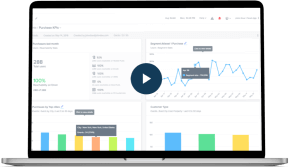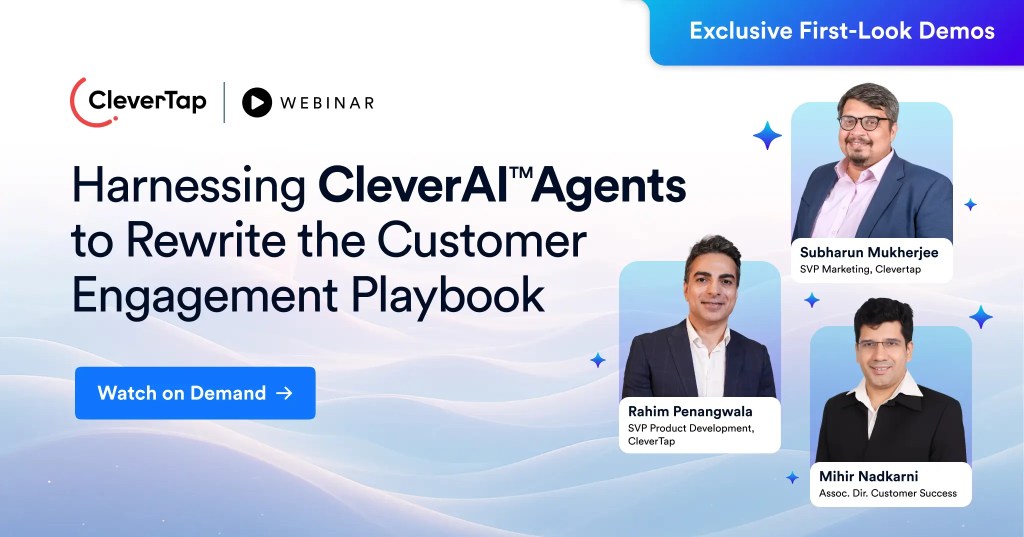Discover how artificial intelligence (AI) is revolutionizing customer experience (CX) in this in-depth guide. Learn why AI is essential for modern CX, explore real-world examples, and see how AI-powered solutions can transform your business.
Artificial intelligence (AI) is changing how businesses interact with their customers. In an era when customers expect their experiences to be “inconspicuous,” AI provides the ability to personalize, empathize, and orchestrate individualized experiences with efficiencies of scale. This comprehensive guide explores how AI can help build inconspicuous customer experiences, providing practical insights and real-world examples to help businesses leverage AI effectively in their customer engagement strategies.
What is the Use of AI in Customer Experience?
The world is moving from swipe-on-screen to prompt-based interactions. Today, customers demand experiences that they can “pull” to their customized requests rather than being forcefully “push”ed into preconceived rigid workflows.
With growing awareness of personal data privacy and lowering tolerance for frequent irrelevant “marketing” messages, both amongst customers and market regulators, customer experience needs to be intent-driven, pull-based, in-flow, and helpfully personalized.
AI brings with it the power of machine learning, natural language processing, and predictive analytics to deliver on all of the above and do so at scale.
For a deep dive into the use of AI in customer experience, watch our topical webinar here.
Traditionally, customer experience management relied heavily on manual processes or bulk automation, impacting customer satisfaction and loyalty. In contrast, AI-powered solutions offer several advantages:
- Real-time Actionable Data Insights: AI can analyze hyper-large volumes of customer data in-moment and in-flow, providing real-time actionability while the customer is in the moment and in the flow of completing an action.
- Intent-Based Anticipation of Next Best Experiences: AI provides the ability to predict customer intent. This is critical in anticipating customer needs and providing the next best experience when, how, and where the customer wants.
- Consistent Experiences: AI eliminates human errors and mood fluctuations, ensuring a consistent experience across all touchpoints.
- Scalability: AI solutions can handle multiple customer interactions simultaneously without compromising on quality and using a one-size-fits-all approach.
The impact of AI on customer experience is substantial. According to recent statistics:
- Gartner forecasts that by 2028, 70% of customer service journeys will begin and end with conversational, third-party assistants on mobile devices*.
- Companies using AI for customer service see a 25% increase in customer satisfaction rates*.
- Customers being provided in-moment, in-flow, and helpful personalized AI-powered recommendations see 7X improvement in customer lifetime value increase.
These figures underscore the growing importance of AI in shaping modern customer experiences and highlight the potential benefits for businesses that effectively implement AI-driven strategies.
12 Ways AI Can Improve Customer Experience
AI customer experience tools are becoming increasingly sophisticated, offering personalized interactions at scale. Here are 12 effective ways AI can enhance customer experience:
1. Personalized Recommendations
AI algorithms can analyze user behavior, preferences, and browsing history to deliver personalized recommendations at scale. AI can augment these recommendations with intent-based signals—recommending not just what the customer has liked but what they will love.

To learn more about how AI is being used for e-commerce marketing, click here.
2. Embedded Co-Pilots and AI Agents
AI provides the ability to guide marketers, product managers, and customer service teams to build customer engagement strategies by analyzing customer data from diverse sources, including conversation rates, customer satisfaction metrics, and transactional information.
A global financial services company uses CleverTap’s Intellinode as an AI co-pilot to run multiple experiments to identify the easiest path for its customers to complete their onboarding and Know-Your-Customer processes
Explore Intellinode, dubbed by Forrester in their Wave™: Cross-Channel Marketing Hubs, Q4 2024, report as “stands out as an embedded AI copilot to create a network of experiments and automatically determine winning engagement paths.”
3. Predictive Customer Experience
AI-driven predictive customer experiences anticipate potential issues by analyzing user data and patterns, allowing businesses to address problems before they arise. This proactive approach reduces complaints, fosters trust, and makes customers feel valued. By preventing friction points early, brands enhance customer loyalty and streamline the overall experience.
For example, a leading global retailer uses customers’ search intent signals to predict whether to provide the “compare product” widget on its product page. For customers with a strong intent for a specific product or brand, removing the compare widget on the product page improved conversion rates.
4. Sentiment Analysis
AI-powered sentiment analysis spans channels including social, email, reviews, and more. By detecting sentiment in real time, brands can respond quickly, refine strategies, and head off issues. This broader coverage builds trust, strengthens relationships, and provides a holistic view of customer sentiment.
For instance, a leading food delivery business delivering over 2 million orders per day has seen such holistic benefits by incorporating emotional intelligence into its customer messaging, leading to a reduction in the number of customer complaints and higher customer satisfaction scores.

5. Natural Language Processing (NLP)
AI-powered voice recognition and NLP enable seamless, hands-free interactions, improving accessibility and response times. Virtual assistants understand natural speech, reducing friction and enhancing personalization.
Over time, AI refines accuracy, ensuring faster resolutions and a more intuitive customer experience. This is critical as the world moves from swipe-on-screen to prompt-based interactions, and customers expect experiences that are built on their prompts.
6. Personalized Email Marketing
AI-powered personalized email marketing enhances CX by tailoring content, timing, and subject lines to individual preferences. By analyzing user behavior and engagement patterns, AI ensures emails are relevant and timely, boosting open and conversion rates.
This level of personalization fosters stronger customer relationships, increases engagement, and drives brand loyalty. Leveraging AI to personalize email marketing strategy can yield an average return of $36 for every dollar spent.

7. Dynamic Pricing
AI-powered dynamic pricing adjusts prices in real time based on demand, competition, and customer behavior. It ensures fair pricing, personalized discounts, and better deals, enhancing customer satisfaction. Businesses also optimize supply and demand, improving conversions and reducing stock issues.
For instance, one of the largest insurers in the world is using health data, with due permission, from customers’ smartwatches to create insurance plans that are personalized for their health needs while also proactively providing health advice for their customers to be more healthy.
Learn more about how data and AI are coming together to deliver the above and other interesting use cases in “Data Deprecation & AI: A New Paradigm for Customer Engagement” featuring Subharun Mukherjee, VP of Product Marketing at CleverTap, and Rusty Warner, VP and Principal Analyst at Forrester.
8. Visual Search
AI-powered visual search improves CX by enabling users to find products through images, making discovery faster and more intuitive. It reduces search friction, enhances accuracy, and boosts engagement. This is especially beneficial in e-commerce, fashion, and home decor, where visuals influence buying decisions.
9. Fraud Detection
AI-powered fraud detection ensures a secure, seamless CX by identifying and preventing fraudulent activities in real time. It reduces false declines, minimizes losses, and strengthens customer trust, enhancing overall brand reliability.
10. Customer Segmentation
AI-powered customer segmentation analyzes data to group customers by behavior and preferences, enabling personalized marketing and experiences. This enhances engagement, retention, and overall satisfaction through more relevant interactions.
AI-powered micro-segmentation, at the store level, based on predicted purchasing habits for each customer, allowed for hyper-targeted promotions by a leading retailer, StarQuick. This led to 37.5% faster conversions than the global industry average.

11. Predictive Inventory Management
AI-powered predictive inventory management optimizes stock levels, reducing stockouts and delays for a smoother shopping experience. Aligning supply with demand enhances efficiency, cuts costs, and boosts customer satisfaction.
A leading quick commerce brand, which provides ultra-fast delivery of everyday essentials, used Clever.AI to demand-shape their marketing spending, i.e., dynamically reduce marketing outreach in micro-geo-fenced locational segments where demand exceeds supply and increase spending where supply exceeds demand. This led to dual benefits of a reduction in customer complaints by 20% and better inventory efficiencies by almost 10%.
12. Augmented Reality (AR) for Product Visualization
AI-powered AR enhances CX by letting customers visualize products in real-world settings, boosting confidence and reducing returns. Industries like fashion, home decor, and beauty see higher engagement and better buying decisions.
The integration of AI in customer experience strategies has led to significant improvements in customer satisfaction and loyalty. By implementing these AI-driven solutions, businesses can create more engaging, efficient, and personalized customer experiences.
How Different Industries Can Benefit From AI-Driven Customer Experience
An AI-driven customer experience can significantly enhance customer satisfaction and loyalty through personalized interactions across various industries:
1. Retail
AI-powered recommendation engines and virtual try-on experiences can increase sales and reduce returns. For instance, Lenskart, a leading eyewear brand, is using virtual assistants to take measurements to deliver spectacles that are personalized for each customer*.
2. Banking and Finance
AI-driven fraud detection and personalized financial advice can enhance security and customer trust. JPMorgan Chase’s COiN platform uses AI to review legal documents, saving 360,000 hours of work annually*. Additionally, one of CleverTap’s global bank customers is using Clever.AI to identify customer advocates and design and orchestrate personalized referral programs.
3. Hospitality
AI-powered concierge services and predictive maintenance can improve guest experiences. Hilton’s AI concierge, “Connie,” has increased guest engagement by 10%*.
4. Telecommunications
AI can predict and prevent network issues, reducing downtime and improving customer satisfaction. Vodafone’s AI system reduced customer churn by understanding and recognizing different customer queries*.
By tailoring AI solutions to industry-specific needs, businesses can create unique, value-added experiences for their customers, driving loyalty and growth.
Real-World Examples of AI in Customer Experience
Customer experience AI tools are becoming increasingly sophisticated, offering personalized interactions at scale. Here are some compelling real-world examples:
- Spotify’s Discover Weekly Playlist:
Spotify’s AI-powered Discover Weekly introduces users to new music based on their listening habits, doubling streaming time for engaged users. - Starbucks’ Personalized Marketing:
Starbucks uses AI to analyze customer purchase history and preferences, sending personalized offers and recommendations. This approach has resulted in an increase in marketing campaign effectiveness. - Domino’s Pizza AI-Powered Ordering:
Domino’s “AnyWare” ordering system uses AI to allow customers to order through various platforms, including smart speakers and smartwatches. This innovation has contributed to a 50% increase in digital orders. - Levi’s Virtual Stylist:
Levi’s uses AI to power a chatbot that helps customers find the perfect pair of jeans. The Virtual Stylist significantly increased conversion rates for engaged shoppers. - IKEA’s Augmented Push:
IKEA Place has been reported to have increased online sales by 35% and reduced product returns by 20% since its launch in 2017. - North Face’s Personal Shopper:
North Face’s AI-powered shopping assistant asks customers questions about their preferences and intended use of products, then recommends suitable items. This has led to a 60% click-through rate on recommended products. - Netflix’s Recommendations:
Netflix uses AI to suggest movies and shows based on viewing history, resulting in a 75% increase in viewer engagement. - Amazon’s Predictive Purchase Recommendation:
Amazon highlights frequently purchased items, prompting customers to reorder at the right time. - Statista’s study for AI-Powered Email:
A 2023 survey of email marketers across the U.S., U.K., and Europe found that approximately 51% believed AI-powered email marketing was more effective than traditional methods.
These examples demonstrate how AI is transforming customer experiences across various industries, leading to increased engagement, satisfaction, and sales.
Challenges You Might Face When Using AI for Customer Experience Optimization
While AI for customer experience optimization can lead to more efficient and effective customer interactions, businesses may encounter several challenges:
- Data Privacy and Security:
As AI systems require vast amounts of customer data, ensuring data privacy and compliance with regulations like GDPR is crucial. According to a Tableau report, 48% of consumers have stopped doing business with a company due to privacy concerns*. - Integration with Existing Systems:
Integrating AI solutions with legacy systems can be complex and time-consuming. A Forrester study found that 67% of businesses struggle with integrating AI into their existing IT infrastructure*. - Maintaining the Human Touch:
While AI can handle many interactions, customers often prefer human interaction for complex issues. A PwC survey revealed that 75% of consumers want more human interaction in the future, not less. - Ethical Considerations:
Ensuring AI systems make fair and unbiased decisions is crucial. A study found that facial recognition AI had higher error rates for minorities, highlighting the need for diverse training data. - Employee Adoption and Training:
Implementing AI requires significant changes in workflows and skills. Many companies face challenges in training employees to work alongside AI systems. - Accuracy and Reliability:
Ensuring AI systems provide accurate and reliable results is crucial. IBM found that poor data quality costs the US economy $3.1 trillion annually, emphasizing the importance of high-quality data for AI systems.
Addressing these challenges requires careful planning, ongoing monitoring, and a commitment to ethical AI practices. By doing so, businesses can harness the full potential of AI to enhance customer experiences while mitigating potential risks.
How CleverTap Drives AI-Powered Customer Engagement
CleverTap’s Clever.AI represents a significant advancement in AI-driven customer engagement, offering a comprehensive suite of tools to enhance customer experiences. Here’s how CleverTap leverages artificial intelligence in customer experience:
1. Predictive AI
CleverTap’s AI leverages the industry’s only purpose-built customer data technology, TesseractDB, to analyze over 10 years of customers’ persona, events, and emotions to predict precise business outcome forecasts. This extended data lookback enhances prediction accuracy, leading to improved marketing ROI through anticipatory analytics.
The proprietary database technology also enables deep behavioral analysis and swift decision-making support.
2. Generative AI
By combining creativity with emotional intelligence, CleverTap’s AI creates resonant customer messaging and experience at scale. This enables hyper-personalized experiences, driving higher conversion rates across various customer touchpoints.
3. Prescriptive AI
CleverTap’s AI doesn’t just predict outcomes; it provides actionable recommendations to maximize conversions throughout the customer journey. This real-time engagement strategy optimization ensures outcome-driven interaction planning.
4. Omnichannel Messaging
CleverTap’s AI integrates with various communication channels, including email, SMS, in-app notifications, and push notifications. This ensures consistent cross-channel engagement tailored to each user’s preferences.
5. Automated Segmentation
The AI-driven categorization and behavior-based grouping capabilities allow for dynamic segment updates, enhancing marketing relevance and personalization.
6. Lifecycle Optimization
CleverTap’s AI maps customer journeys, enabling stage-specific engagement and automated progression tracking. This optimizes the entire customer lifecycle, from acquisition to retention.
The impact of CleverTap’s AI-powered solutions is significant:
- 66% increase in conversion rates
- 35% boost in operational efficiency
- Substantial improvement in marketing ROI
By leveraging CleverTap’s Clever.AI capabilities, businesses can create more engaging, personalized, and effective customer experiences, driving growth and loyalty in an increasingly competitive market.
Conclusion
As these trends unfold, businesses that stay ahead of the curve in AI adoption and innovation will be well-positioned to deliver exceptional customer experiences and gain a competitive edge in their respective markets.
In conclusion, AI is not just transforming customer experience; it’s redefining it. From personalized recommendations to predictive experiences, AI-driven solutions are enabling businesses to create intent-driven, pull-based, in-flow, and helpfully personalized experiences at scale. While challenges exist, the potential benefits of AI in customer experience are immense.
As we look to the future, it’s clear that AI will continue to play an increasingly central role in shaping how businesses connect with and serve their customers. By embracing AI and addressing its challenges thoughtfully, companies can create customer experiences that are not just satisfactory but truly exceptional.
Subharun Mukherjee 
Heads Cross-Functional Marketing.Expert in SaaS Product Marketing, CX & GTM strategies.
Free Customer Engagement Guides
Join our newsletter for actionable tips and proven strategies to grow your business and engage your customers.














































